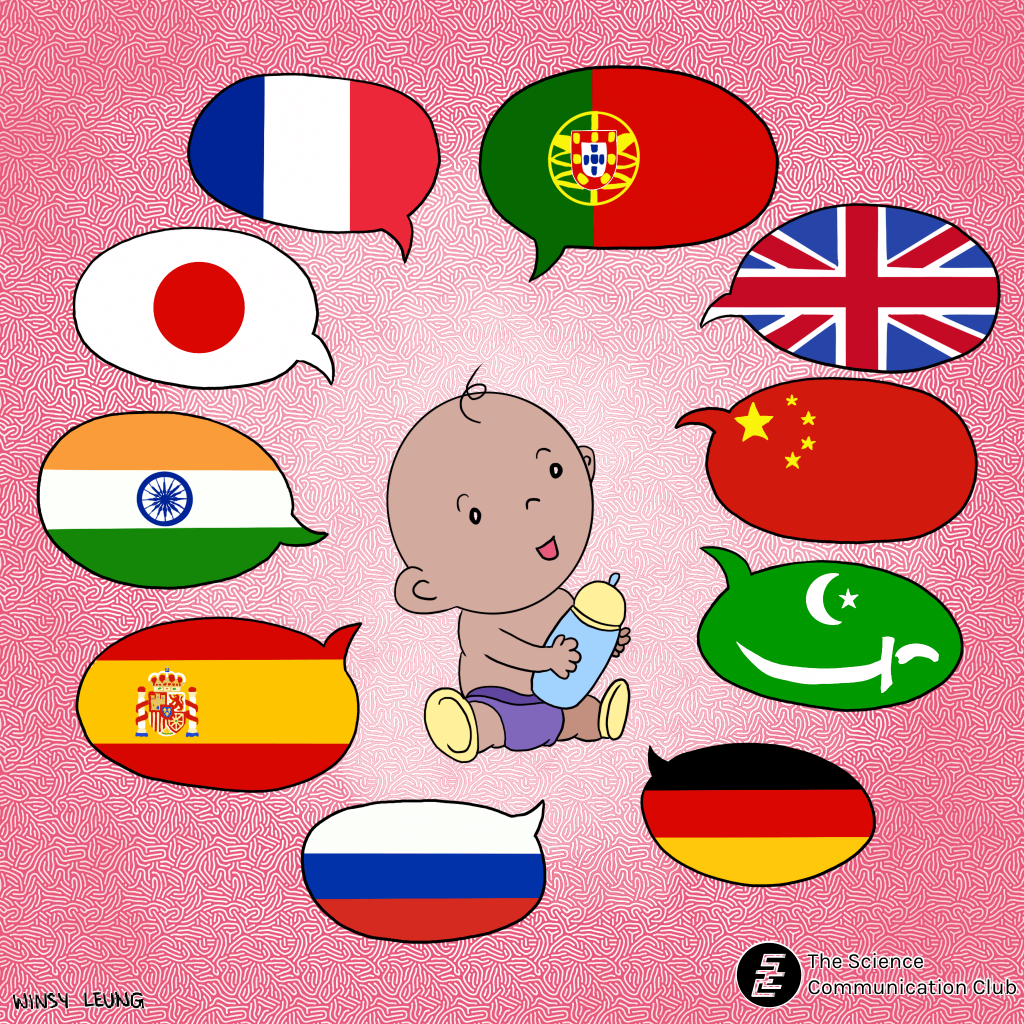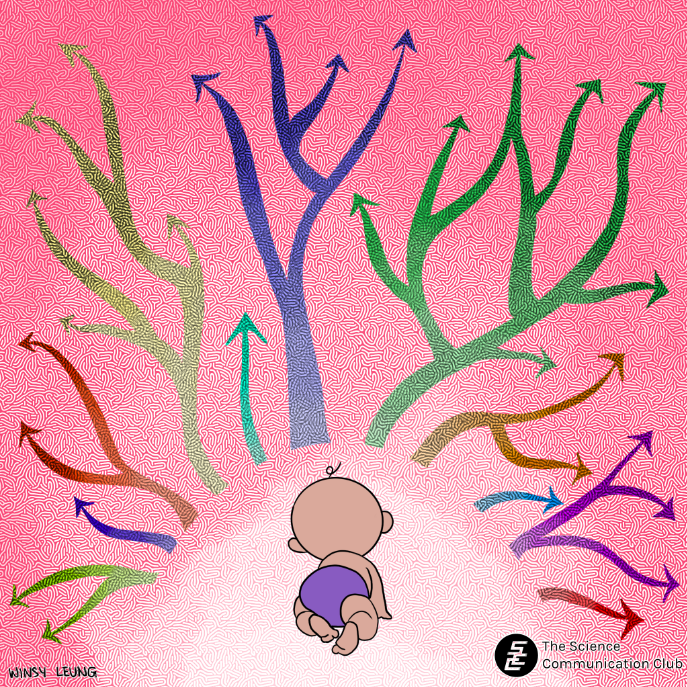
Written by Anita Mazumdar-Moscato
Illustrated by Winsy Leung
How many times have you downloaded Duolingo, fired up to learn Portuguese or Korean, only to give up after losing your 40-day streak? Even after 40 days, you think, I still only know how to say “Hi, how are you?” It’s easy to get discouraged, but if it’s any solace, our struggles with learning new languages are mostly biological.
Maybe you rediscovered some old home videos where baby-you is crawling around while babbling in semi-fluent French,and you wonder how you spoke it so easily and why you’re not able to learn it now — I mean, you have the brain capacity to (sort of) understand the past predicate! The answer lies in the incredible mind of baby-you; you were once brimming with the potential to become a polyglot prodigy.
Why are babies so good at learning languages?
Babies and young children host incredibly elastic brains that can form neural connections extremely rapidly; the brain is not yet specialized, so all neural connections are prioritized equally2. This is in contradiction to how your brain works when you get older: it begins to reinforce regularlyused pathways, and it becomes more difficult for new pathways to be formed2. Babies enter this “critical period” at six months — the window of opportunity is quite short, and only lasts a few months afterwards3.
How do babies learn languages?
Every language is made up of a diverse collection of phonemes, or distinct units of sound. For example, the word “mommy” is made up of two phonemes: “mah” and “mee.” Currently, there are approximately 800 phonemes that create the foundation for the more than 7,100 languages spoken around the world today, and babies are born with the ability to master them all3.
After developing phonemic awareness — the ability to recognize and produce phonemes — babies are then able to puzzle out how phonemes fit together to create meaning as words. This involves understanding “word boundaries,” or where one word ends and another begins1. For example, they learn that the phonemes doh-gee refer to the cute puppy next door. The baby’s vocabulary then grows, and eventually becomes large enough for them to begin using them in sentences.

How can we learn from babies?
Though babies can develop language relatively independently, a study by Dr. Patricia Kuhl concluded that human interaction is a necessary component of infantile language development. The dopamine that comes from social interaction is crucial to the accurate and efficient formation of critical neural pathways that contribute to linguistic ability. Additionally, Dr. Kuhl confirms that “parentese” — the colloquial term for “baby talk” — is extremely beneficial to an infant’s language development: the higher pitch, slowed exaggeration of phonemes, and slower tempo all work together to create the perfect environment in which babies can recognize phonemes, turn them into words, and create their own sentences3.
This factor of babies’ processes can be extended to language-learning in adolescents and adults; oftentimes, we rely on virtual software — such as Duolingo and Rosetta Stone — to help us learn languages. However, if we look over to these tiny polyglot prodigies, we see that the answer to getting better at a language is to talk to people. The other reason why babies are so good at learning languages is because they have no inhibitions; they’re not afraid of looking stupid when they mistake “pasketti” for “spaghetti!”
So, my advice to any aspiring polyglots out there? Pretend you’re a baby, and you’ll do perfectly fine.
Sources
- Bainbridge C. 2021 Mar 23. How Do Children Learn Language? Verywell Family. https://www.verywellfamily.com/how-do-children-learn-language-1449116.
- Galatro T. 2018 Feb 24. Why Do Children Learn Languages Faster than Adults? Tessa International School. https://tessais.org/children-learn-languages-faster-adults/.
- Kuhl PK. 2015. Baby Talk. Scientific American. 313(5): 64–69. doi: 10.1038/scientificamerican1115-64.